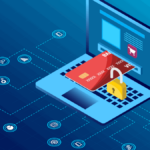Beware of Holiday-Themed Scams
Scammers often capitalize on the holiday season by using festive themes in phishing emails and online ads. They may pose as popular brands or stores like Kmart, JB Hi-Fi and Amazon, enticing victims with fake order confirmations, undelivered parcels and special discounts. Always scrutinize unexpected emails and messages, especially those with attachments or links requesting personal information.
Verify Sender Information
Pay close attention to the actual email address and links in messages. Scammers can easily spoof emails to make them appear legitimate. Hover over links to reveal their true destination. Legitimate companies won't use suspicious URLs, so if something seems off, trust your instincts.
Identify Red Flags in Emails
Scams often reveal themselves through poor spelling or writing style. Overseas scammers may exhibit language inconsistencies. Take the time to read emails carefully, looking for signs of fraud, and report any suspicious messages to your email service provider.
Example - Netflix Update Payment Scam. A common scam involves emails that mimic legitimate services like Netflix. Watch out for urgent language, such as "your account will be deactivated," and check URLs carefully. If the link doesn't match the official website, it's likely a scam.
Guard Against Brand Spoofing
Scammers impersonate well-known companies to collect personal or financial information. Be skeptical of messages pressuring you to update payment information or respond urgently. Avoid clicking on any links and report phishing attempts promptly.
What to Do If You Encounter a Scam
- Avoid Clicking Links: Refrain from clicking on any links or providing personal/financial information.
- Report Phishing: Flag the email as phishing to your email service provider.
- Report It To National Anti-Scam Centre: They probably heard of the 99% of scams before though. By the way, their website is worth reading!
- Protect Yourself: If you suspect a compromise, contact your bank, replace credit cards, and change passwords promptly. Time is crucial in minimizing potential damage.
Got Scammed? We Can Help You!
We won't be able to get your money or time back, but if you need to make sure your computer is clean from backdoors, viruses, or remote support software that scammers typically use, give us a call. We have limited hours during the holidays but might be able to accommodate you.
Stay vigilant and have a safe holiday season!





